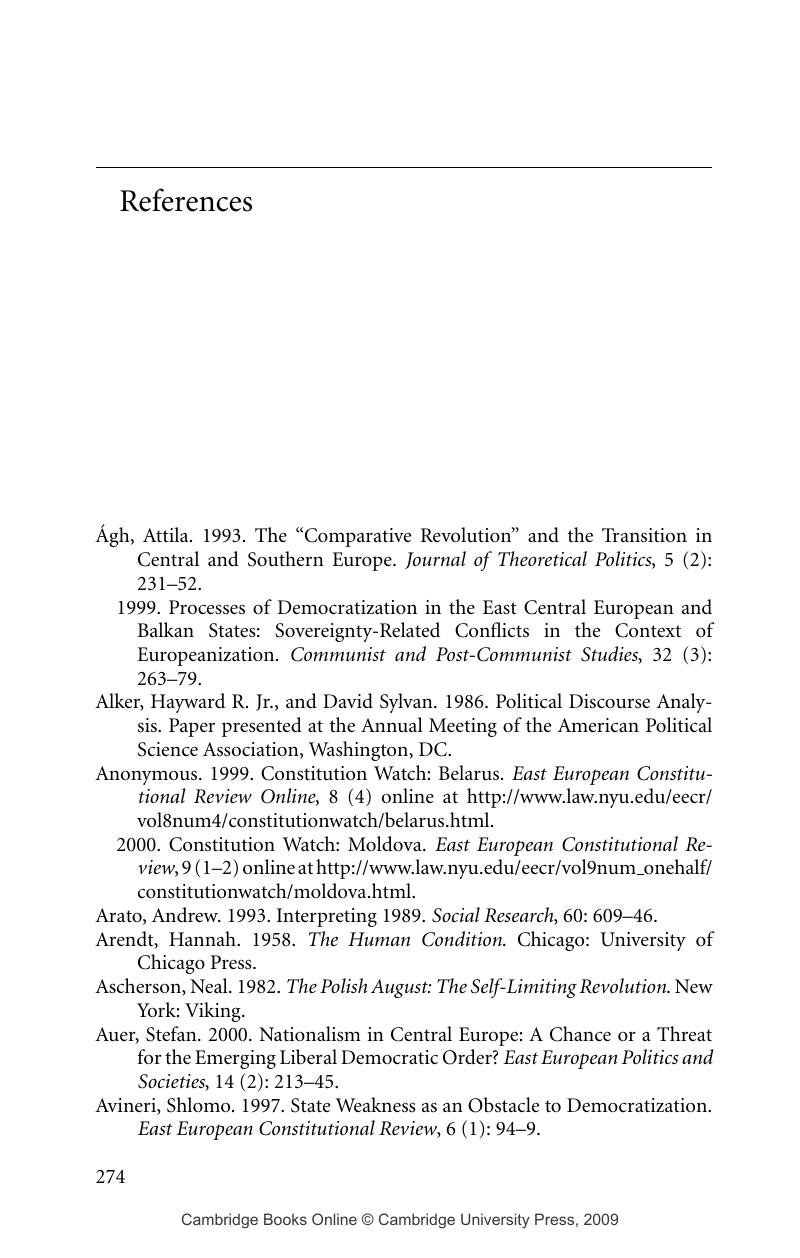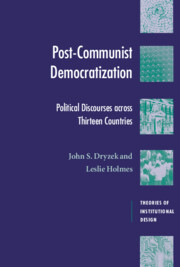References
Published online by Cambridge University Press: 22 September 2009
Summary

- Type
- Chapter
- Information
- Post-Communist DemocratizationPolitical Discourses Across Thirteen Countries, pp. 274 - 290Publisher: Cambridge University PressPrint publication year: 2002



